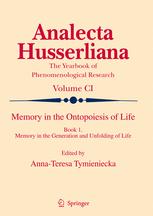

Most ebook files are in PDF format, so you can easily read them using various software such as Foxit Reader or directly on the Google Chrome browser.
Some ebook files are released by publishers in other formats such as .awz, .mobi, .epub, .fb2, etc. You may need to install specific software to read these formats on mobile/PC, such as Calibre.
Please read the tutorial at this link: https://ebookbell.com/faq
We offer FREE conversion to the popular formats you request; however, this may take some time. Therefore, right after payment, please email us, and we will try to provide the service as quickly as possible.
For some exceptional file formats or broken links (if any), please refrain from opening any disputes. Instead, email us first, and we will try to assist within a maximum of 6 hours.
EbookBell Team

4.8
94 reviewsFrom Aristotle to the present, memory has been grasped as an image--a trace or impression left by a lost reality--and has been seen as bridging physiological experience and consciousness. Through the centuries philosophers have vainly sought to make concrete the nature of this bridge between sensory experience and consciousness. The present-day physiologizing/naturalizing of consciousness is no closer than previous attempts to resolving their congenital continuity. But the very existence and practice of life is rooted in this continuity, and clearly we have to change our approach to and formulation of this enigma (Erwin Straus). This will mean simultaneously hitting upon and entering into the Aristotelian congenital ties between memory and temporality, which acquire crucial significance in our primogenital ontopoiesis of life (Tymieniecka). The ontopoietic approach to the generation and unfolding of beingness, to the step by step temporalizing of life in the whirl of coalescing moments, reveals memory to be the factor that carries the great secret of this coalescence of temporality and the becoming of life itself. This selectivity and coalescence cannot be the fruit of singular functional schemata or organs, but must proceed from the generative springs of life, become the new platform of first phenomenology/philosophy, with the fluctuating thread of continuity of memory now to be sought at the innermost heart of beingness and becoming in the ontopoietic logos of life.
We propose in this collection to explore the fulgurating force of memory within the perspective of the constitution of reality: rememorizing and interpretation, consciousness and action, facts and imagination, history and myths, self-realization and metamorphosis....